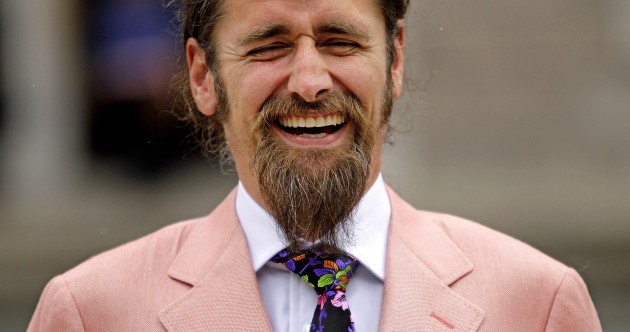Inquest into Savita Halappanavar’s death is to examine only 16 witnesses out of 60


Only 16 of the 60 witnesses who gave statements during the Irish Garda's probe into the death of Indian dentist Savita Halappanavar in Ireland will be called to give evidence on Monday.
The Irish Times said last Saturday that less than one-third of 60 witnesses will be called to testify at the inquest which proceeds to a full hearing on Monday morning. The inquest opened in January for one day and was adjourned until April 8th.
Savita, from Karnataka, was 17-weeks pregnant when she died at Galway University Hospital on Oct 28, 2012 after being admitted on Oct 21 with severe back pain. The doctors refused to abort the fetus saying that it was forbidden in the Catholic country.
The Irish Times said the weight of the witness evidence will come from personnel involved in the later days of Savita’s care at the hospital.
 According to her husband Praveen Halappanavar the couple asked repeatedly for a termination as she was miscarrying.
According to her husband Praveen Halappanavar the couple asked repeatedly for a termination as she was miscarrying.
Praveen’s lawyer Gerard O’Donnell said, “We will go through everything, the list of witnesses giving evidence and consider our position on those who have still not given statements as the evidence unfolds.”
In January the lawyer for Galway University Hospital, Declan Buckley, said two members of staff had been unable to file statements as they were in a “difficult position”.
The final draft of the unpublished Health Service Executive report found there was an “overemphasis” on the fetus and an “under-emphasis” on Savita’s health.
According to leaked documents of Ireland’s health ministry’s probe, doctors failed to even diagnose the infection which allegedly led to Savita’s death.
Ireland’s abortion laws are the strictest in Europe. Savita’s death caused widespread outrage in India and re-ignited protests and debate on abortion laws.
Minister Sherlock says no crisis in Labour Party despite MEP Childers resignation


MINISTER SEÁN SHERLOCK SAID THAT LABOUR WAS ONLY TWO YEARS INTO A FIVE-YEAR MANDATE AND THE PARTY FELT IT WAS PROBABLY SHOULDERING 100% OF THE BLAME
MEP Nessa Childers said taking a stand is not easy, but said she was sick and tired of worrying about offending the leadership
Ms Childers’ defection – the seventh from the parliamentary party since entering Government two years ago – has refocused attention on a growing sense of antipathy within the organisation toward what many see as self-contradictory austerity policies.
She refused to be drawn on how many more high-profile resignations might come but said she would welcome them only as a “last resort”.
60 members of the Labour Party attended the meeting of the Campaign for Labour Policies group
Labour Minister Seán Sherlock has said that there is no crisis in the Labour Party in Government.
Speaking on RTÉ’s Saturday with Claire Byrne programme, the Cork East Minister said he fully acknowledged that Labour had not yet been able to deliver on child benefit and student registration fees.
He said Labour was only two years into a five-year mandate and the party felt it was probably shouldering 100% of the blame.
Mr Sherlock said the public discourse is that the decisions that have been made are largely at the door of Labour.
Minister Sherlock said there were some people peddling the idea that the leadership was trying to stifle a conference.
He said it was decided by the party’s executive last October not to hold a conference until autumn because of the Irish presidency of the European Union.
Minister Sherlock said Labour was going through a very difficult phase.
He said it was not the first time it has been at this juncture when it decided to go into government in very tough economic times.
He acknowledged that there are members who have left the parliamentary party but said there was a unitary level of purpose among those who meet weekly in the party.
Earlier, more than 60 Labour Party members met in Dublin to campaign for the party’s policies to be implemented in Government.
The group have called for an immediate special party conference to seek an urgent review of the Programme for Government.
MEP Nessa Childers urged Labour Party members to take action to save the party and the people it represents.
Ms Childers, who yesterday resigned from Labour’s Parliamentary Party, got a standing ovation at the meeting this morning.
She said taking a stand is not easy, but said she was sick and tired of worrying about offending the leadership.
The party is running out of time and urgent action is required, even if that means getting into conflict with Labour TDs, she said.
Property tax inquiries on rise as owners wrestle with self-assessment
Figures show comparatively few people have filed returns so far, but numbers picking up
Latest figures suggest that comparatively few people have fully engaged with the property tax, but the past week will have encouraged Ministers.
Only 5 per cent of people who have received formal notification of the tax have so far filed returns, but there is evidence of a pickup in engagement. The numbers who have made returns have more than doubled since last weekend.
The deadline for sending in paper returns is May 7th, while the deadline for filing online is May 28th. As of last weekend, 15,237 forms had been filed online, with 10,145 paper returns. Figures released yesterday, however, showed something of a spike with 36,888 forms filled out online and 23,068 paper returns. There is still a long way to go – a total of 1,193,154 letters have been issued, including those through the online system, covering 1,351,289 different properties.
Members of the public have made a significant number of queries about various aspects of the tax. There have so far been 64,294 calls to Revenue’s designated helpline.
This is a considerable jump from the figures last week, which showed that 35,846 members of the public had contacted the helpline. More than 9,612 calls came on Thursday of this week – the highest volume of calls to date on any one day.
Part of the reason for the rise in returns filed and calls to the helpline that day could be attributable to the news on Wednesday that the European Commission was unhappy with the self-assessed nature of the tax.
In an internal report reviewing Ireland’s performance under the four-year international bailout, commission staff raised concerns that some homeowners could undervalue their properties.
Revenue’s website for valuing property has received 804,826 hits to date – up from 751,679 last week.
A spokesperson for Revenue said last night they were asking property owners to engage “reasonably and honestly” with the process.
“This is a self-assessed tax, which means that you assess the value of your property having regard to the guidance available, your knowledge of the property, and the local area.
“Their self-assessment will be accepted. The band system means you don’t have to be precise and Revenue does not expect people to pay for a professional valuation.”
Men are happier in life than women especially when it comes to appearances
- Women are happier with aspects of their life such as love, sex and family
- The average Briton rates their level of happiness at 64 per cent
- Being married and over 55 also increases satisfaction with life
- Lack of money makes us most depressed, as does bad weather
Men are generally happier in life than women, particularly when it comes to their appearance, new research has found.
A detailed study into 12 aspects of modern life found men experience higher levels of happiness in seven of them, including salary, appearance and body shape.
Women’s scores were higher than men in the love life, family life and sex life categories.
Overall, the average adult rates their current happiness level at an encouraging 64 per cent.
The study, commissioned by Benenden Health, also found the typical woman’s happiness scored highly in general health and their living location.
Other areas in which men emerged as happier than the opposite sex were career prospects, ‘how other people see you’, finances and job security.
The nation’s mood emerged amid a detailed study which initially asked people to opt for ‘cup half full’ or ‘cup half empty’ and then examined the reasoning behind their decision.
And the results claim to have settled the age-old debate around the popular saying, with six in ten people claiming they adopt a positive outlook overall.
The biggest barrier to feeling content in day-to-day life was money worries, which affected 46 per cent of respondents.
In fact, it would take just £132 extra a month for the average person to make ends meet and dramatically improve their overall happiness.
The researchers say this proves it’s not just a big windfall that would help increase the average person’s outlook on life, but in fact a relatively modest sum.
Unsurprisingly, those questioned said better weather would improve their mood – and would be the thing most likely to raise their optimism day to day, along with receiving more affection from a partner.
Eating a better diet, a job that is more satisfying and finally shaking a long term injury or illness all featured in the top 10 wishes for a brighter outlook.
More reassurance from the boss, spending more time with family and good performance from sports teams also featured in the list.
One of the more bizarre findings was that a third of people studied would be more optimistic in life if their partner showed them more commitment.
And, perhaps contrary to popular belief, getting hitched seems to do wonders for a brighter perspective on life with married people rating significantly happier than singles in almost all categories.
Despite this, one fifth couples said they had actually become less optimistic in life since getting married.
When looking forwards the study was split 50/50 between those who thought they had good reason to be positive and those searching for reasons to be optimistic about their life.
However, there was a clear trend towards happiness growing with age – over 55s proved the most likely to rate themselves as an eternal optimist.
The biggest barrier to feeling content in day-to-day life was money worries, which affected 46 per cent of respondents
Interestingly, the younger generation seemed less upbeat overall and were most likely to say their outlook has become gloomier in recent times.
This trend rises directly with age, with the under 25s most likely to say their perspective on life has become more negative and the over 55s least likely to feel their optimism has declined.
The study also found despite the lingering economic doom, soaring cost of living and stagnant housing market the majority of us have adopted a Monty Python-style ‘Always look on the bright side of life’ attitude.
Paul Keenan of Benenden Health, which commissioned the report, said: ‘Given the pessimistic economic outlook, the financial restraints everyone is under and the grim weather, it’s good to discover deep down, there seems to be a positive and forward-looking attitude across Britain.
‘Certainly, a positive attitude goes a long way towards creating a feeling of well-being which in turn can only be good for our long term health.
‘This doesn’t detract from the fact many families have real difficulties and struggles to face in the current economic climate – but perhaps serves to demonstrate the British “stiff upper lip” is alive and well in the 21st century.’
He added: ‘It’s interesting to see men are more likely to adopt a more upbeat view overall – although that particular finding is likely to be a debate that will rumble on and on.’
Ming Flanagan says: I can achieve great things for my good people


Independent TD Luke Ming Flanagan has made a desperate plea to voters for support, admitting he has made mistakes but claiming he will go on to do “great things” for his people.
Amid recent calls for his resignation, Mr Flanagan also defended his place in the Dáil.
The Roscommon-South Leitrim TD recently admitted having penalty points quashed for using his phone while driving in June 2011. Gardaí wiped two penalty points and a fine off his record after he wrote to them about being caught using his phone behind the wheel in Roscommon.
In a letter addressing voters in a local newspaper this week, he called on constituents to boot out Fine Gael representatives at the next election because of the Government decision to close Roscommon Hospital’s emergency department.
“Many people say: ‘Sure, they will never do that [reopen the unit]’. Well fine, then remove them at the next opportunity, the 2014 local election,” Mr Flanagan wrote in the Roscommon People.
The TD recently also claimed a “senior county council official” helped cancel another set of points for the same offence on a separate occasion and told him he had “sorted out” the points with a garda.
Defending his continued presence in the Dái, Mr Flanagan argued that it was more productive to attend committee hearings rather than Leaders’ Questions with Enda Kenny.
“I could alternatively have attended Leaders’ Questions, but what would I have achieved?” he wrote. “I would get to hear our Taoiseach fail to answer a single question. I would have got to hear him call Gerry Adams a terrorist, say that Micheál Martin had ruined the country, and that the technical group are a rabble.”
He claimed he had spoken in the Dáil more than his constituency colleagues, Fine Gael TDs Frank Feighan and Denis Naughten.
“Every week my office carries out approximately 250 hours’ work,” he said. “We deal with hundreds of calls every month. Each and every one is answered and followed up on, sometimes for months on end. Much of these requests come in electronic form whether that be through email, Twitter, or Facebook.”
Independent TDs have rounded on Mr Flanagan and called on him to leave the Dáil’s technical group because his penalty points scandal is distracting from business.
However, Mr Flanagan pledged to change for his supporters. “I will admit and have admitted that I have made mistakes,” he said. “When I have done so I put up my hand. I believe I am worth my place in Dáil Éireann. I believe I can go on to achieve great things for my people.”
Happy cows make for tastier meat, says animal expert


Seeing the world through the eyes of a cow has led Temple Grandin to become one of the most influential figures in the global meat industry.
The American animal- welfare expert attended the All-Ireland State Veterinarians Conference in Dublin to share her insights into how to make the meat industry more humane.
Dr Grandin is the most famous autistic adult in the world – having been the subject of an award-winning movie starring Claire Danes.
Severely autistic as a child, she was unable to speak until she was four and was bullied and taunted at school.
But her instinctive affinity with animals and acute visual sense paved the way for her career, with ‘Time’ magazine dubbing her one of the 100 most influential people in the world.
She has been credited with transforming the animal- slaughter methods used by massive corporations such as McDonalds and Burger King.
Dr Grandin told vets yesterday that humane systems resulted in better meat as high stress levels at slaughter flooded the body with hormones that could ruin its quality. She urged them to get down to cow level to see what the cows were seeing as a means of identifying stresses.
“Cows are highly visual, they see a shadow or a reflection and they’re terrified – you have to remove these stresses,” she said.
Dr Grandin urged the use of stringent checklists to audit animal welfare, such as the percentage of animals successfully stunned before slaughter or the number of animals suffering stressful falls, which could be prevented by non-slip flooring. “I think visually but I try and translate that into checklists, which can be used to quantify exactly how animals are faring,” she said.
On the subject of autism, Dr Grandin said she had been extremely fortunate that she had received very intensive early intervention to get her talking and able to function in the world. “The worst thing you can do with a child who’s two or three and not talking is nothing,” she said.
But she warned that children with autism should not allow it to become their sole defining feature and an excuse for never learning to work.




No comments:
Post a Comment